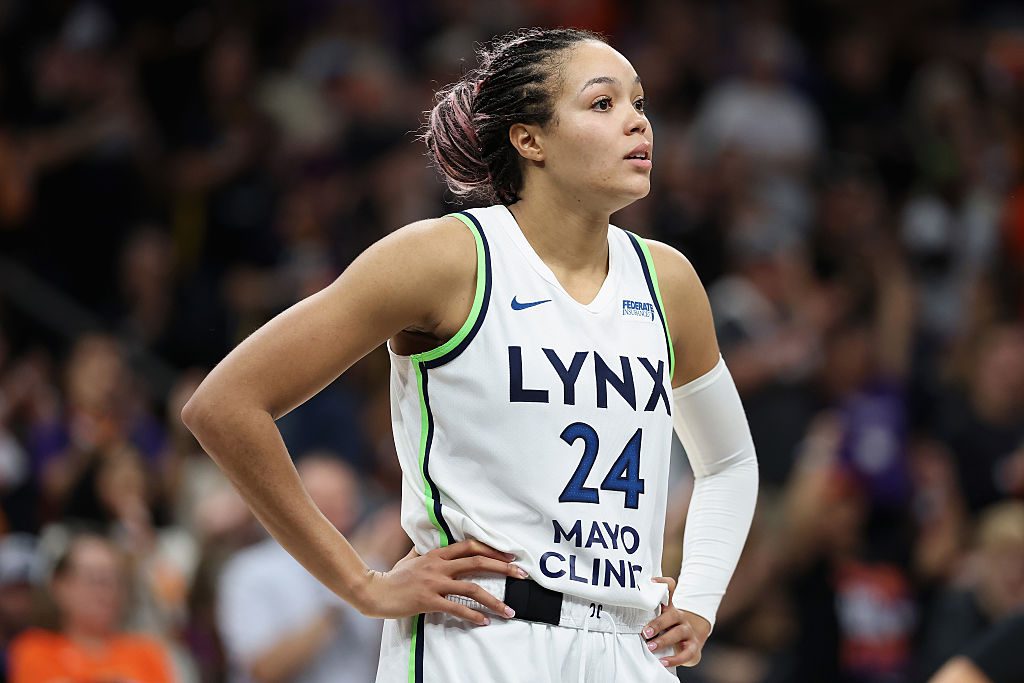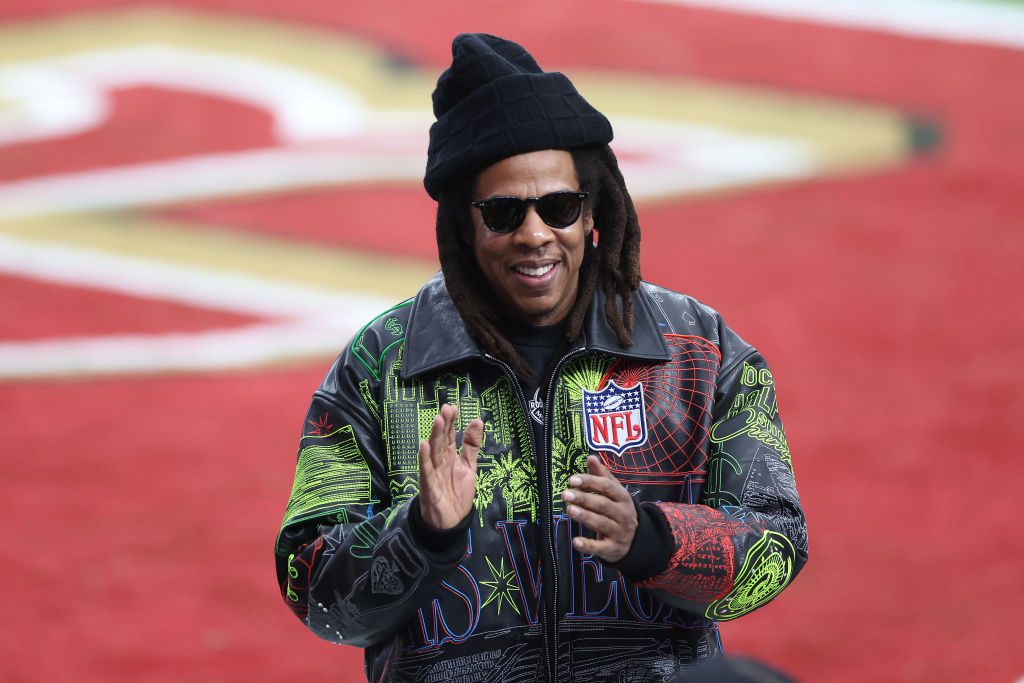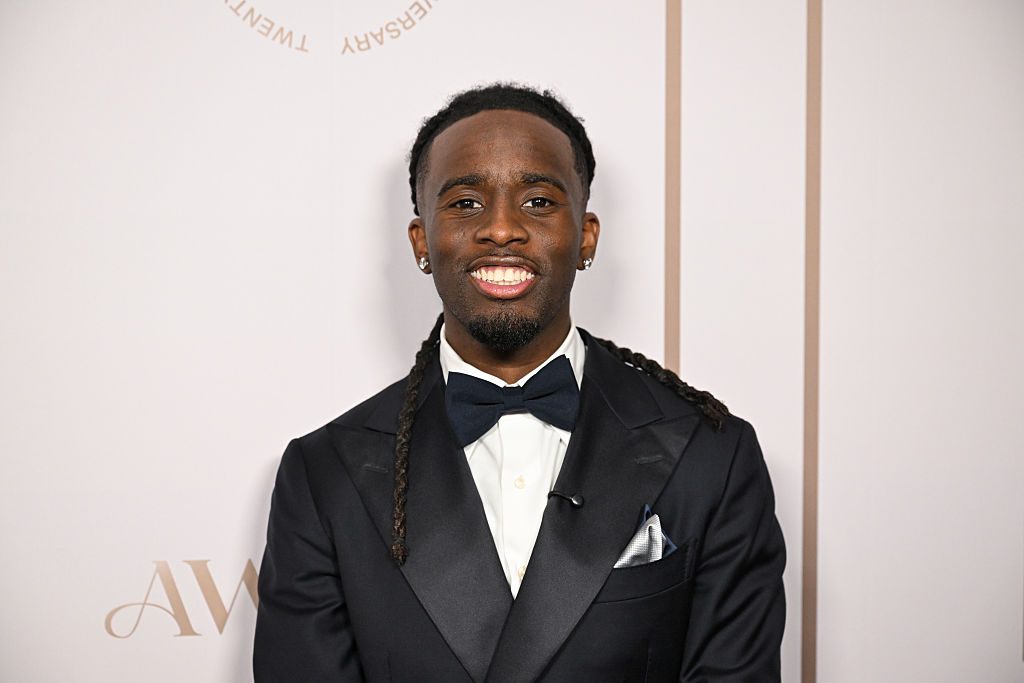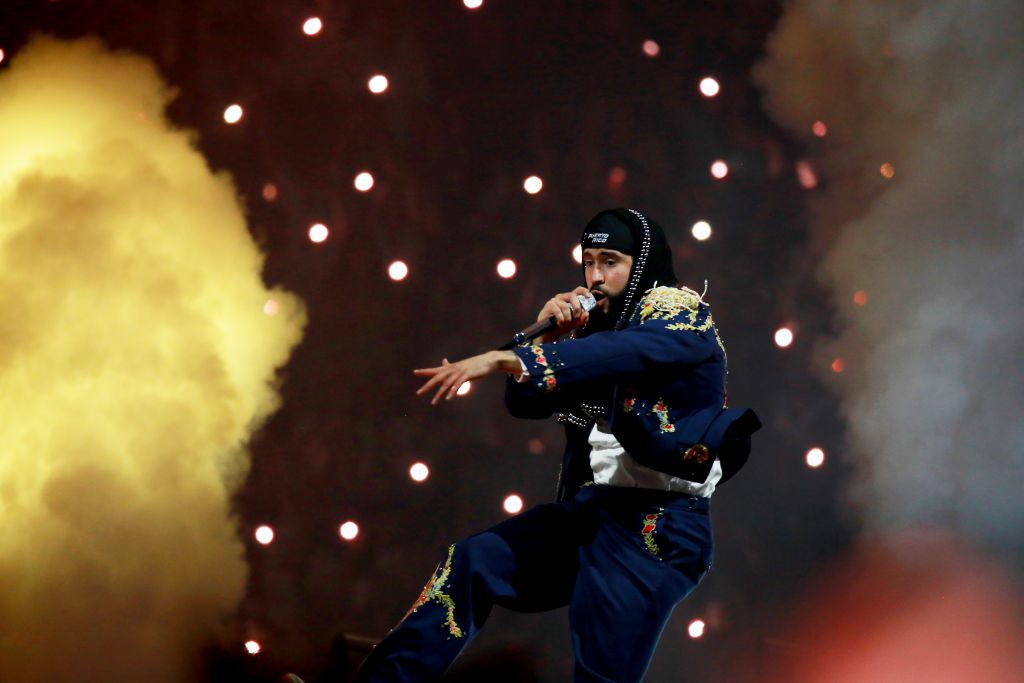When Minnesota Lynx forward Napheesa Collier took the mic in her postseason press conference, it wasn’t business as usual.
She delivered a meticulously prepared statement directed at WNBA Commissioner Cathy Engelbert and the league’s leadership as a whole. In the “letter,” Collier accused the league of chronic lack of accountability, particularly in how officiating is handled (especially when player safety is at stake). She also revealed that in private conversations, Engelbert dismissed complaints as “Losers crying about refs.” Collier also stated that Engelbert implied that young star players (specifically Caitlin Clark, Angel Reese and Paige Bueckers) should feel grateful for endorsements and exposure, rather than demand fair pay. Collier added that after she sustained an injury in a game stemming from a non-call, she never heard directly from Engelbert. Instead, she spoke with the league’s second-in-command, who further downplayed the idea that physical play contributes to injuries. Collier’s messages were very blunt: the product on the court is slipping, players are not being protected, and the voices of those who play the game are being marginalized.
Engelbert’s public response was swift. She expressed that she was disheartened by how Collier characterized their conversations, while reiterating that she had the utmost respect for Napheesa Collier and all WNBA players. She added that her commitment to elevating the league would not waver. Something noticeable about the retort, though, was that Engelbert didn’t directly counter many of the specific observations laid out by Collier. There was an obvious difference in the tone of Collier’s detailed recounting of private conversation and Engelbert’s appeasing, almost pacifying response. This has led many observers to conclude that a deeper reckoning is around the corner.
During the press conference, other moments gained attention beyond the headline critiques. Collier opened with praise for the fans and players, calling them the best in the world. This was a sharp contrast to how she referred to their leadership, which she described as the worst in the world.
‘Phee’ also acknowledged that she expected possible fines or backlash, saying “I’m sure they’ll fine me…it seems like anything with free speech is fined now.” The framing of the conversation was very strategic. This was not a random rant born out of frustration, but more of a calculated, principled demand for change. Collier was sure to tie her criticisms to the larger picture of upcoming collective bargaining. Obviously, this isn’t just about one comment, player, or season. It’s about how the WNBA governs itself as it continues to grow rapidly.
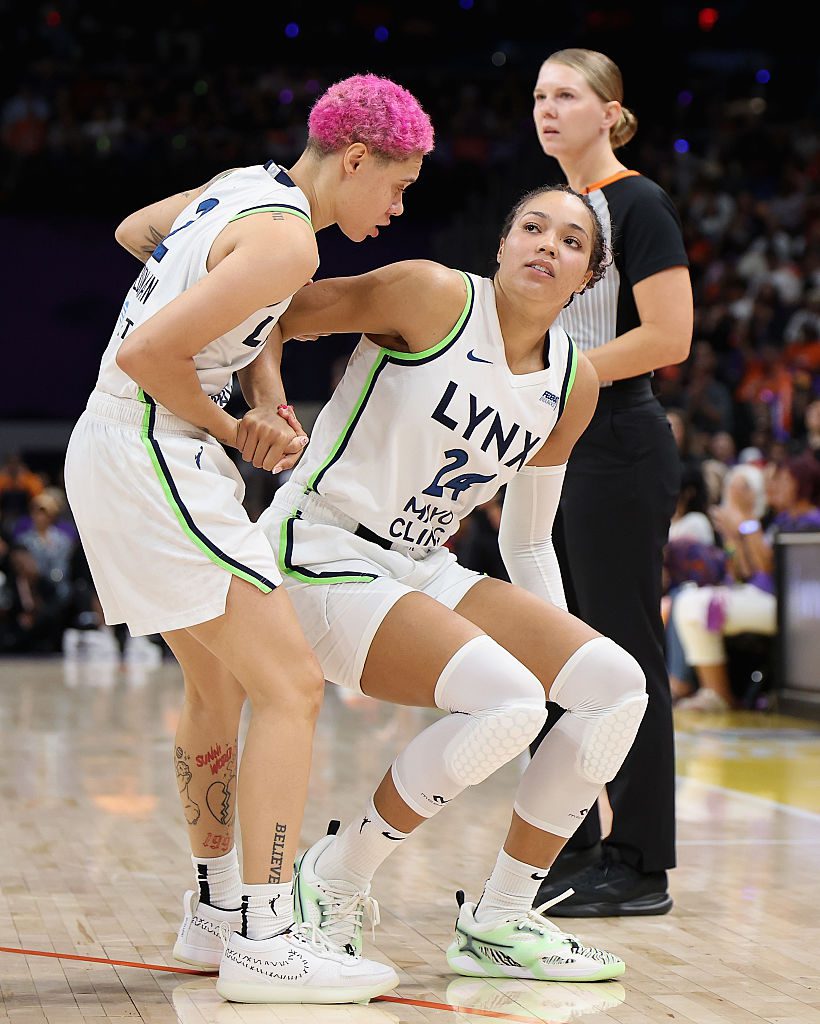
The bravery in Collier’s actions can’t be overstated. To publicly challenge the highest office in one’s sport, while still active in that sport, invites retaliation, marginalization, or financial penalties. With her words, Napheesa Collier not only positioned herself as a star athlete but also as a union leader with moral conviction. In lifting the cover on what she says are systemic failings, she risked being labeled a troublemaker. Instead, the consensus is that what she did was needed because it started a national conversation. In doing so, she redefined how much athletes in the WNBA (and beyond) can demand accountability from the systems that govern them.
Unsurprisingly, the support from Collier’s peers was overwhelmingly supportive. The WNBPA stood behind her, saying that her words reflected the frustrations of many. Players across the league echoed her calls for change, including Indiana Fever guard Lexie Hull and the aforementioned Chicago Sky forward Angel Reese. After a hard-fought Game 5 victory to send her team to the WNBA Finals, reigning MVP A’ja Wilson also chimed in, calling the alleged remarks from Engelbert “disgusting.” Even former MVP Elena Delle Donne noted that she never heard from Engelbert after her retirement. This further reinforced Collier’s point about the “human element” being missing. Collier’s coach, Cheryl Reeve and Indiana Fever head coach Stephanie White both affirmed the importance of Collier’s voice and message. The love and solidarity poured in from everywhere, creating a moment of true collective pressure.
So, what might this mean for the future of not just the WNBA, but perhaps the NBA ecosystem as well?
Collier’s bold stand sets a new template for athlete activism and governance in professional basketball. If the WNBA’s leadership is forced into serious reform regarding officiating, player safety, compensation, and decision-making, it could ripple upward. The NBA, which is already navigating issues around player empowerment, social justice, and labor tensions, may find parallels and lessons. In the future, we may see many more athletes push for greater structural transparency, increased influence over league policies, and stronger protections for their health. In a world where athletes’ voices are more amplified than ever, Collier’s example may not only accelerate demands in the WNBA but in sports in general. We may look back at her speech and pinpoint it as the moment that changed a great deal, especially in terms of more balanced governance in sports and increased accountability. Phee’s unselfish willingness to speak truth, even to the commissioner, marks a sharp pivot. Players are not only stakeholders, but also moral arbiters of the game’s future.
Shoutout to Napheesa Collier for using her voice and platform to make a difference.
RELATED: 32 WNBA Tunnel Outfits That Broke The Algorithm


